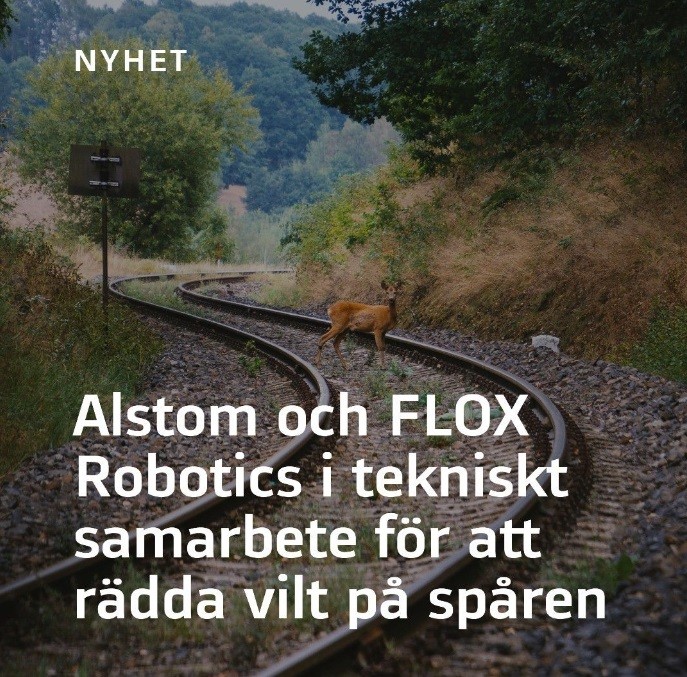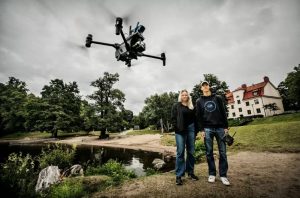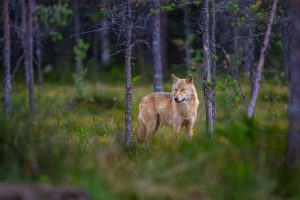-
Alstom and robotics innovator FLOX Robotics, collaborate on new, smart solutions to avoid wildlife collisions with railway traffic.
11 October 2023 – Alstom, global leader in sustainable and smart mobility solutions, and Flox Robotics, an innovator in robotic solutions, reveal their joint strategy for tackling a significant issue in the railway sector: incidents involving wildlife collisions.
The coexistence between wildlife and humans has consistently presented substantial challenges. Due to the speeds and braking distances of trains, the railway industry, often faces unavoidable collisions with wildlife. These incidents result in substantial material damages, emotional trauma for train drivers, and unfortunately, fatalities for the animals. In a world where trains and tracks operate at their maximum capacities, with a growing global awareness of nature conservation, preventing collisions with animals has become a priority.
”By addressing the challenge of wildlife collisions, we’re taking a significant step towards aligning transportation with environmental harmony.”
“As a global leader in mobility solutions, Alstom is strongly committed to more than just connecting places. Our primary focus is to ensure that our innovations respect and protect the world around us. Our collaboration with FLOX Robotics exemplifies this commitment. By addressing the challenge of wildlife collisions, we’re taking a significant step towards aligning transportation with environmental harmony. We believe that with technology and determination, we can create solutions that benefit both humanity and nature”, says Gaël Chosson, Innovation Station Manager at Alstom.
“We combine state-of-the-art wildlife expertise with artificial intelligence to make sure the solution is multi-species, autonomous and works with high efficiency over long periods of time – to prevent wild animals from becoming accustomed to it, which has proven to be an issue with existing solutions.”, says Sara Nozkova, CEO at FLOX Robotics
Innovative Solution
The collaboration introduces an innovative solution designed to repel animals, thereby reducing the likelihood of collisions. Leveraging advanced image analytics and AI algorithms, the technology can identify animals in proximity and emit a tailored repellent noise to deter them. Developed in partnership with the Swedish Agriculture University (SLU), this repellent noise technology adapts over time, ensuring sustained efficiency. Tests conducted in Sweden with Trafikverket, the Swedish National Transport Administration, have confirmed its effectiveness in 88% of cases.
Unlike alternative solutions that lose effectiveness over time as animals acclimate to the repellent noise, the Alstom-FLOX Robotics system ensures prolonged effectiveness. Traditional systems that emit a consistent noise for all animals often fail to deter certain species. Moreover, systems that generate noise upon a train’s approach can unnecessarily disturb both the local community and wildlife not present on the tracks.
The collaboration aims to roll out pilot projects in selected regions later this year, emphasizing the commitment to environmental conservation and railway safety.
Global Impact
- Sweden reports a staggering 5,000 collisions each year.
- France witnesses 2,000 collisions annually.
- Norway faces 1,250 collisions per annum.




